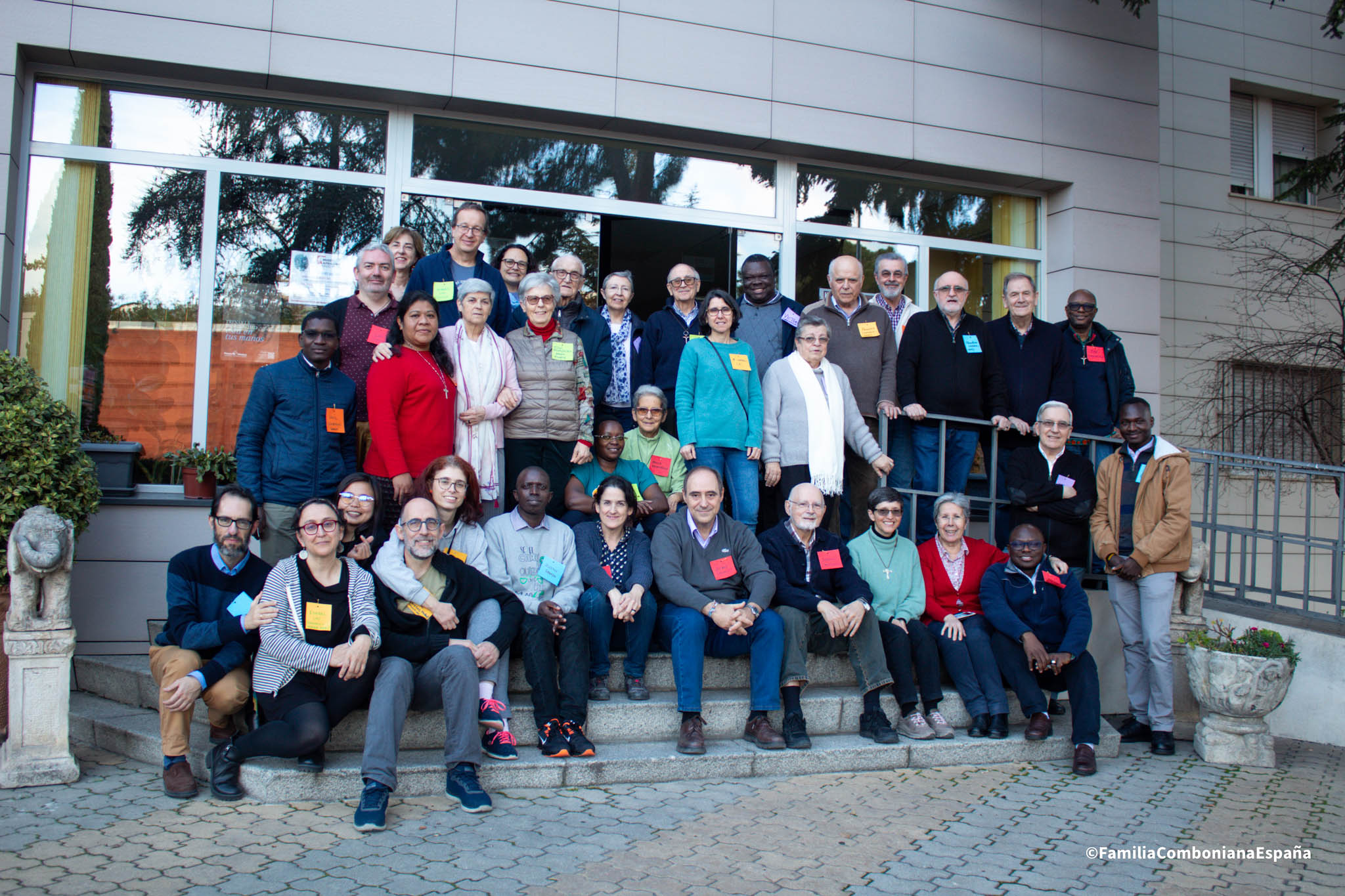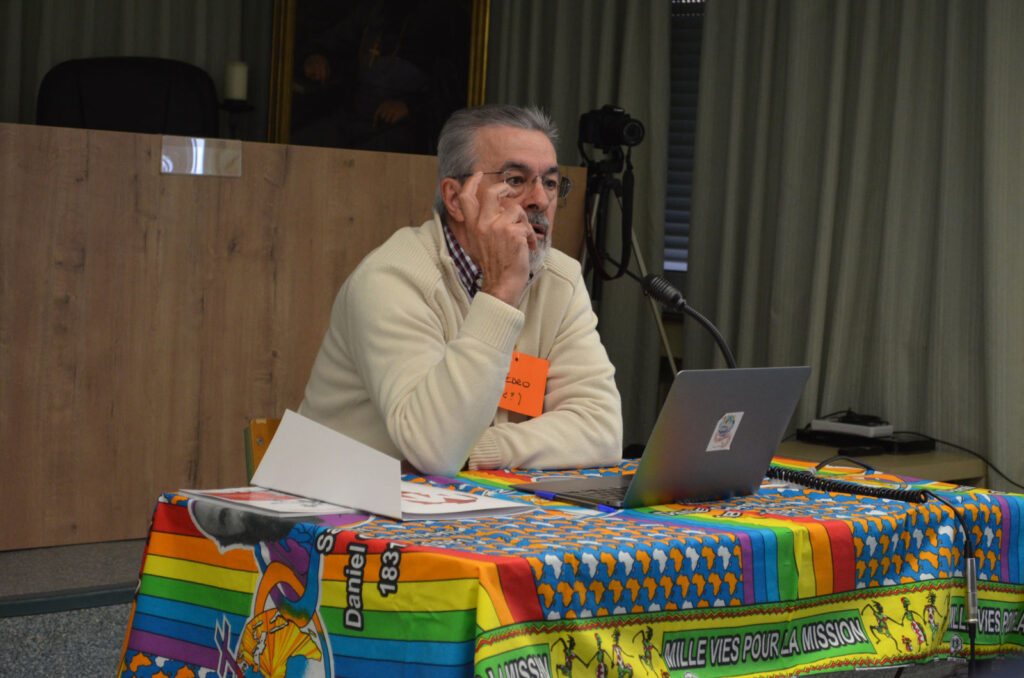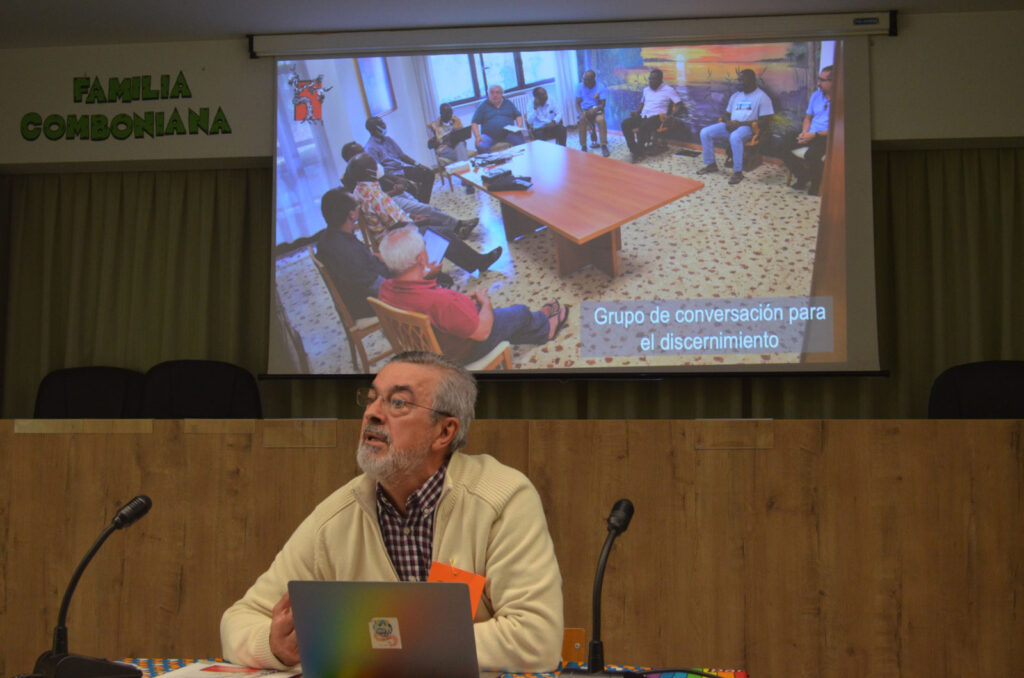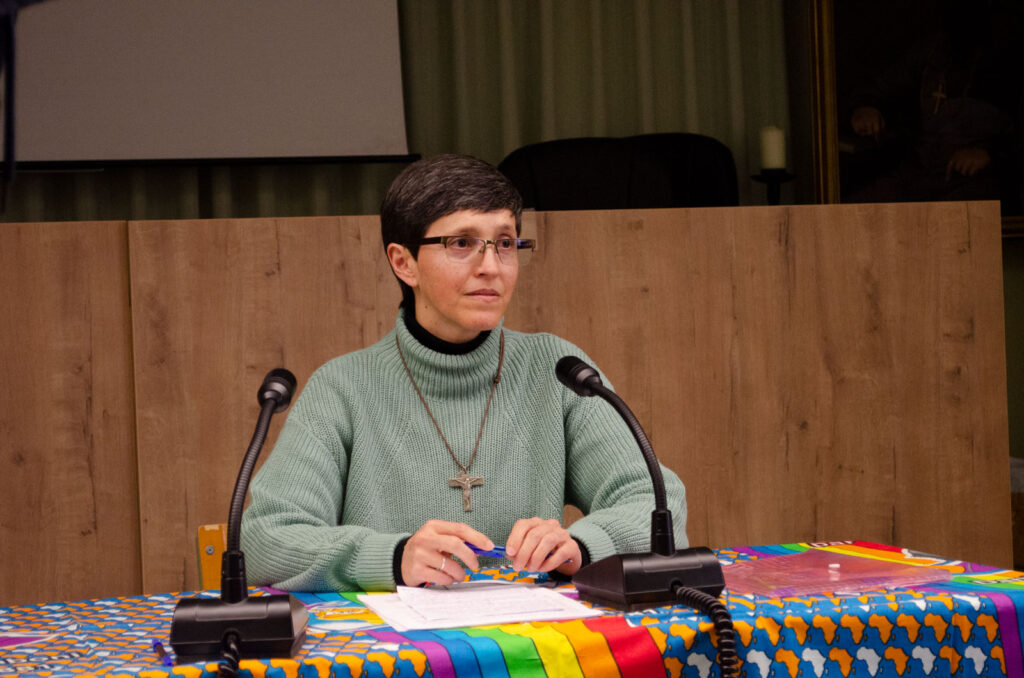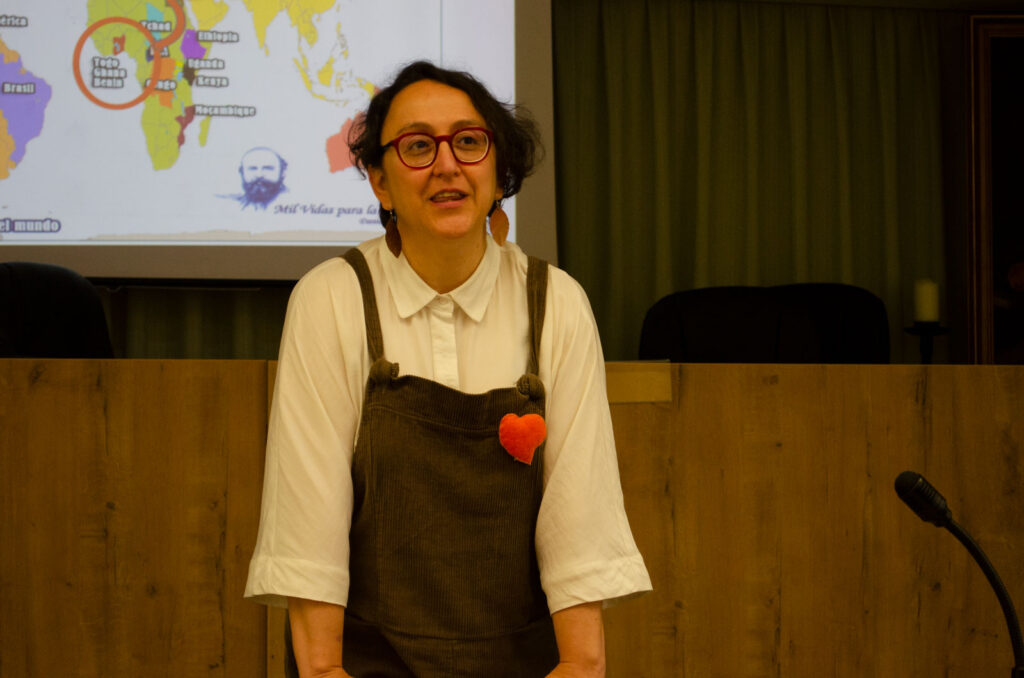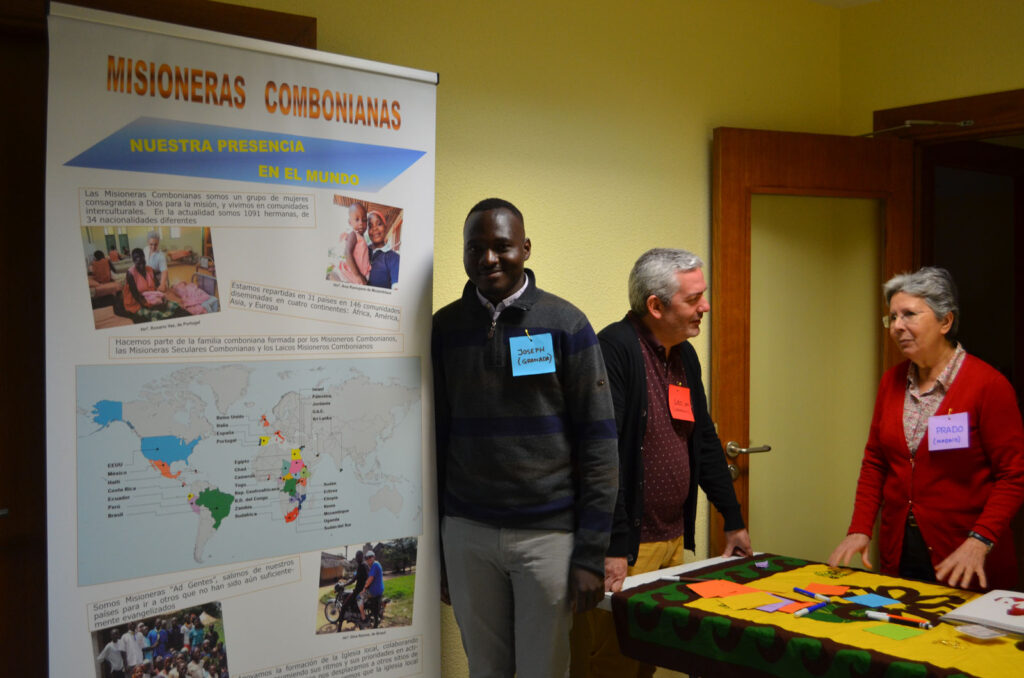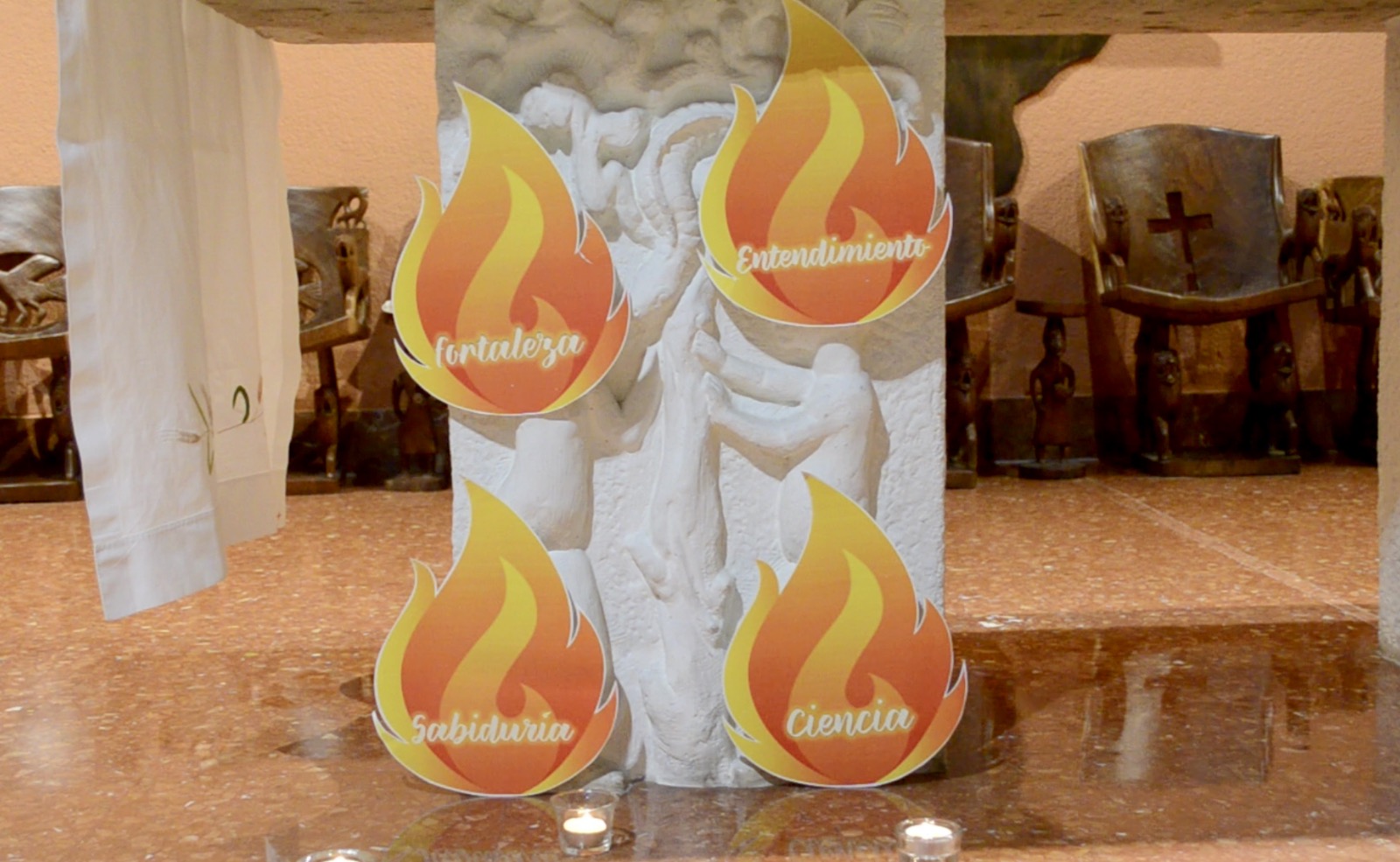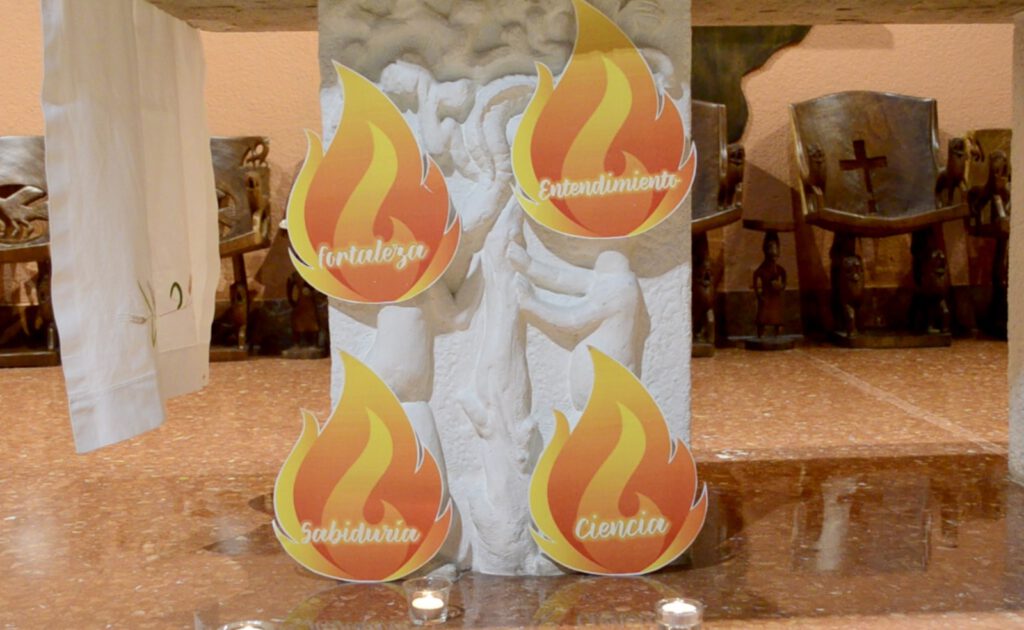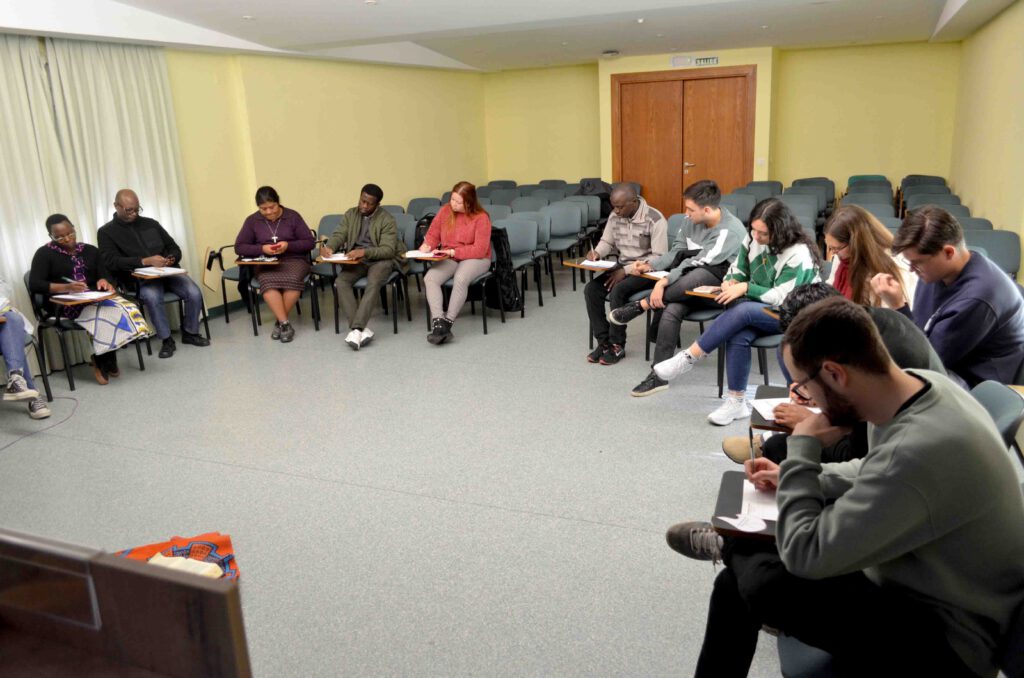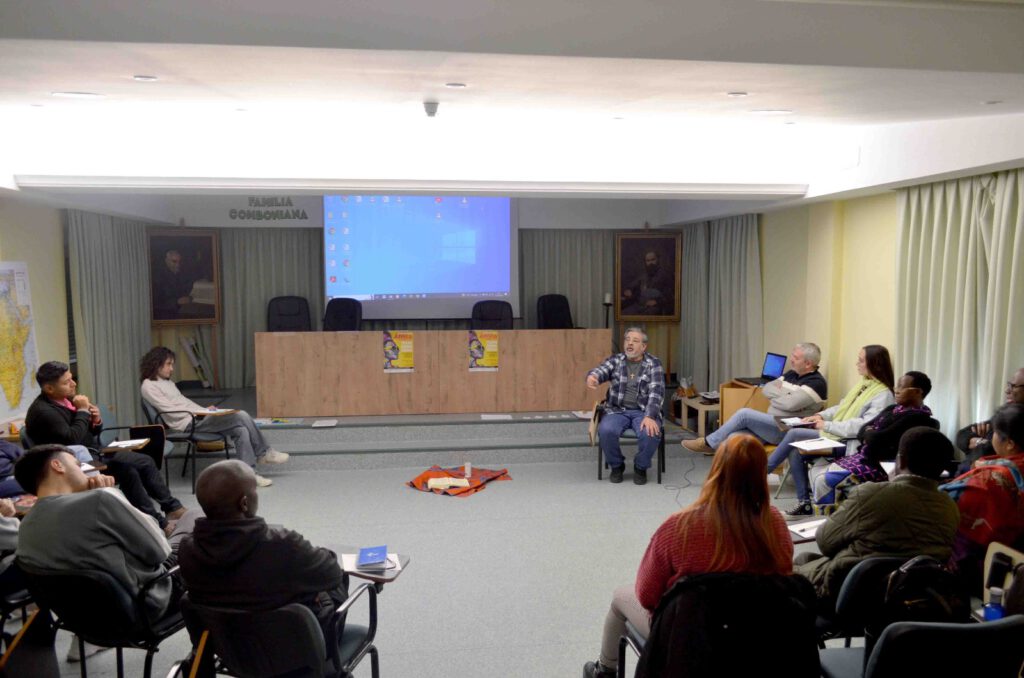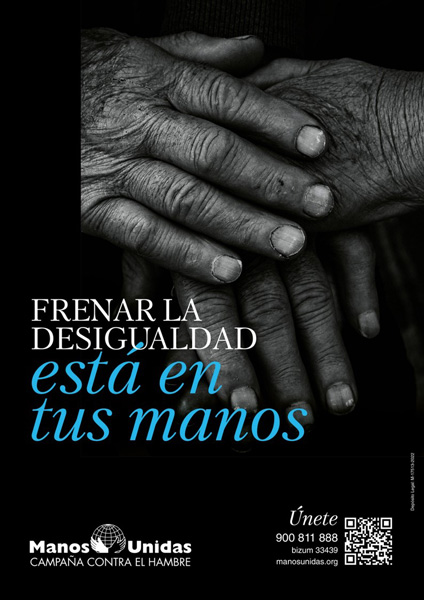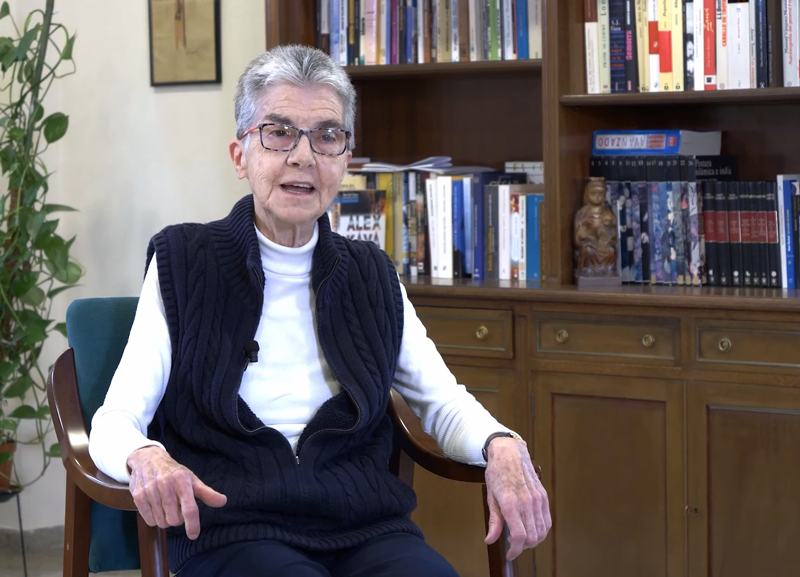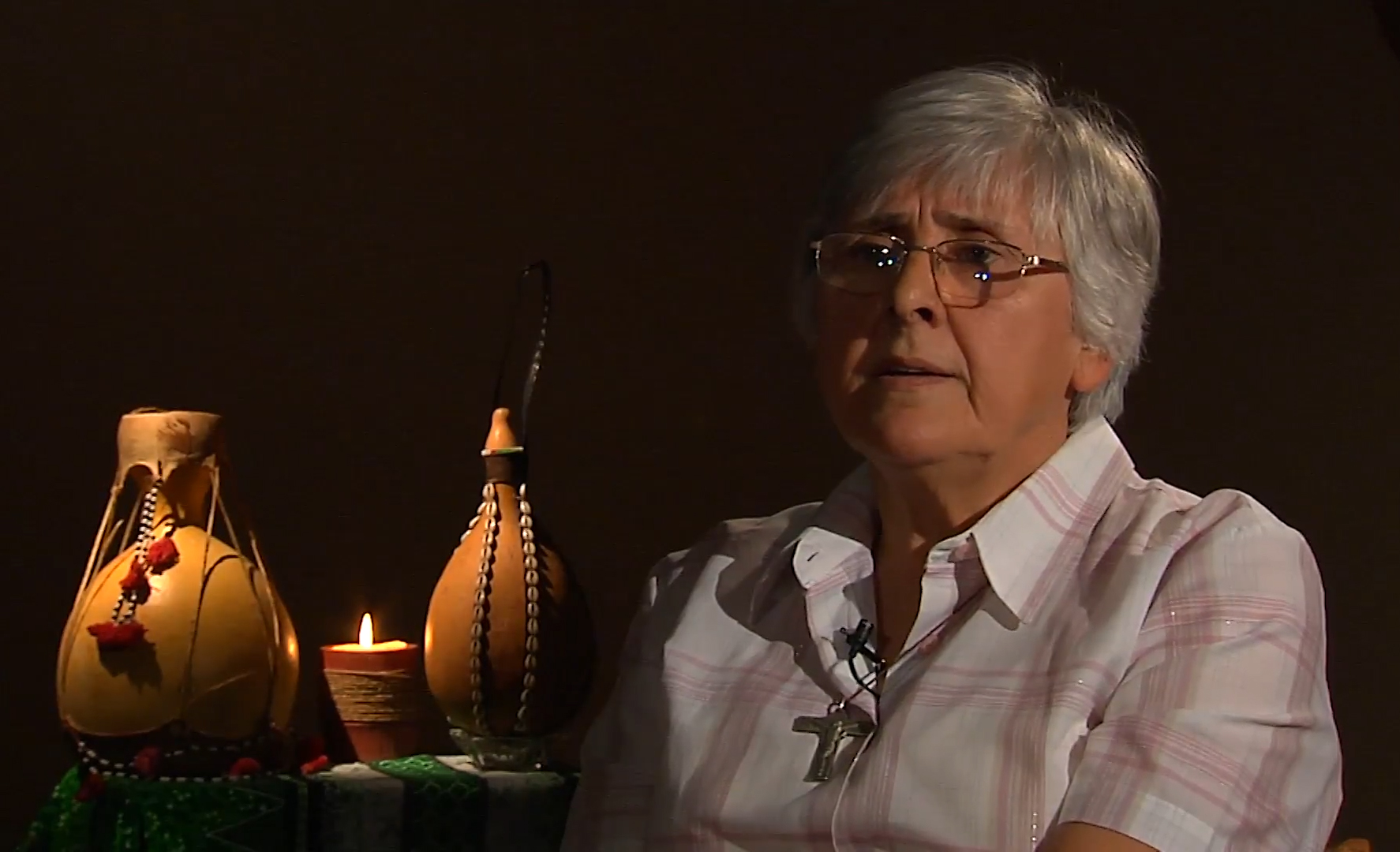Once again this year the Comboni Family of Spain has met in Madrid. It was once again a privileged moment for all of us. With some new participants and many of us who keep repeating.
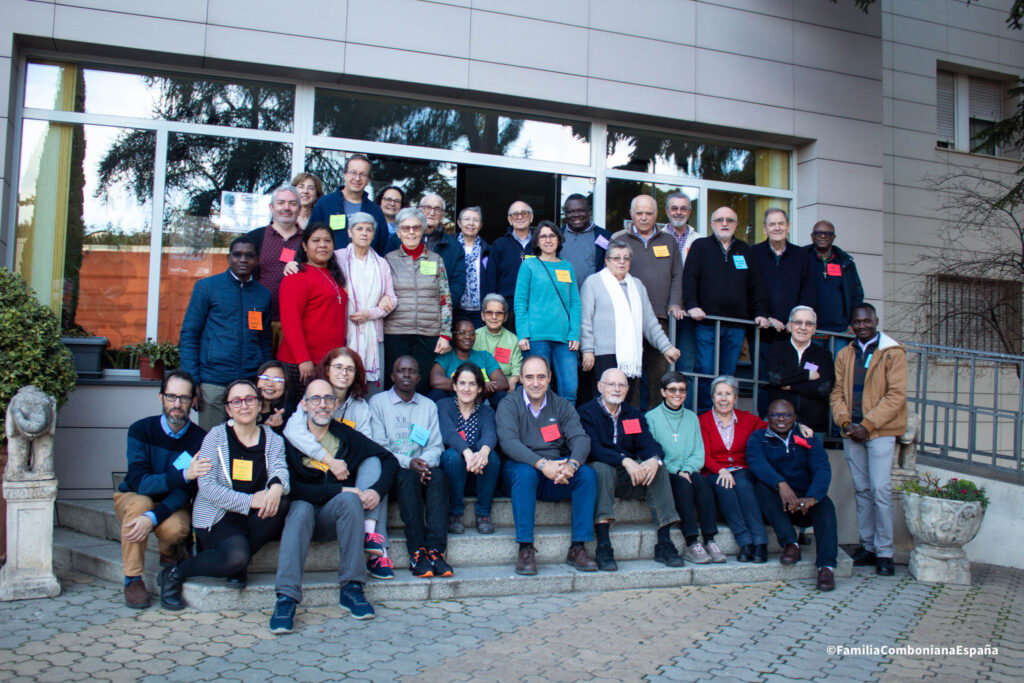
It seems to me that it is a privileged place for all those who enter the province to begin their missionary service, a way of understanding how we relate as a family. Unfortunately this type of meeting is not common in other countries, but in Spain, what we started to celebrate together the 150th anniversary of the Comboni Plan, has become a tradition. We hope that this initiative, where all the religious and lay people of the country come together every year, will be extended to other countries. It is a nice moment of reunion, to take the pulse of how we are walking together and in a particular way each and every one of us. I have always thought that it is also a seed of relationship for all those who will leave for other mission countries and will meet other members of the Comboni family, the bonds that we create in these meetings help us to grow as a family.
As Fr. Pedro Andrés reminded us at the beginning of his presentation, the central point of our first meeting was to rediscover that Daniel Comboni dreamed of us as a family and not as separate institutes. He conceived us so that from our complementarity we could serve the mission in the best possible way.
This year’s meeting focused on sharing the journey we are making at the world level. We took advantage of the fact that the General Chapters for Comboni religious men and women have just been held, and also this year the continental assemblies of the CLM in America and Africa were celebrated.
Fr. Pedro Andres began by telling us how the chapter of the MCCJ was conceived and developed. A chapter that had to be delayed due to the confinement of the pandemic.
A chapter under the motto “I am the vine, you are the branches. Rooted in Christ together with Comboni“. Fr. Pedro explained the preparations and the development of the event in terms of the Comboni Family. He underlined the aspects he considered central in this sense.
The methodology used in the search for the “seeds of life” and the dreams that we should pursue is noteworthy. We are used to look for the failures and how to improve them (which were also present), but he insisted on how they wanted to open themselves to the Holy Spirit and understand, all together, what were those seeds of the Spirit and what He was asking them in this historical moment). Dreams that had to do with Spirituality, with the community, highlighting the synodal path of discernment, the importance of the wheels of conversation, giving time to listen to all, in all languages and from all realities…. The importance of identity and community life, or formation. The very significant role of ministry and the new way of understanding it, walking with the people and re-qualifying people to be at the service of the new needs, a ministry from which to start as a Comboni Family. And finally the importance of integral ecology as a transversal axis of the initiatives to be taken.
Finally, he also commented on the changes proposed in the Rule of Life, where they explicitly recognize the collaboration with the Comboni Lay Missionaries or emphasize the importance of the apostolic community as a common reference point when organizing, carrying out and evaluating the missionary activity.
All this gave us the opportunity to discuss for more than an hour, sharing, asking questions and thanking the Spirit for the many dreams and the good things to come.
Saturday afternoon was used to learn first hand about the chapter of the Comboni Missionary Sisters. Her presentation began with the song “Tell me how to be bread” and around the song and the importance of being leaven in the dough, she was telling us about the time of the chapter.
The motto of the Chapter was: “Transformed by our charism, missionary disciples towards the existential peripheries“. As the chapter started from the reality of the world and the communities where they are present, as it could not be otherwise. A world punished by the pandemic, by wars, by climate change… and also a chapter marked by the decrease of members in the institute and the forecasts for the future. All this has made them rethink their presence and their options for a meaningful mission with a new internal organization.
With three central axes: charism, government in synodality and reconfiguration. These have been the backbone of these reflections.
Starting from the charism that gives light to all the reflection and the work done. Charism is like yeast in the dough, which helps it to ferment and allows it to rise. A small quantity but essential and necessary for the bread to be bread.
The charism that becomes life in the strong sense of God that leads to be mission and not so much to do mission. Finding a balance between contemplation and action so necessary. From the community as a cenacle of apostles that needs to be constantly renewed, as an intercultural and intergenerational community. And of course from the passion for the mission, like the passion of St. Daniel Comboni who continues to animate and give life in the Comboni family.
Secondly, she spoke of government in synodality, with the importance of the mission, of formation and also the care of the elderly and sick sisters (of whom there are many in the Institute). A government that should be able to face the challenges that lie ahead in the next 6 years.
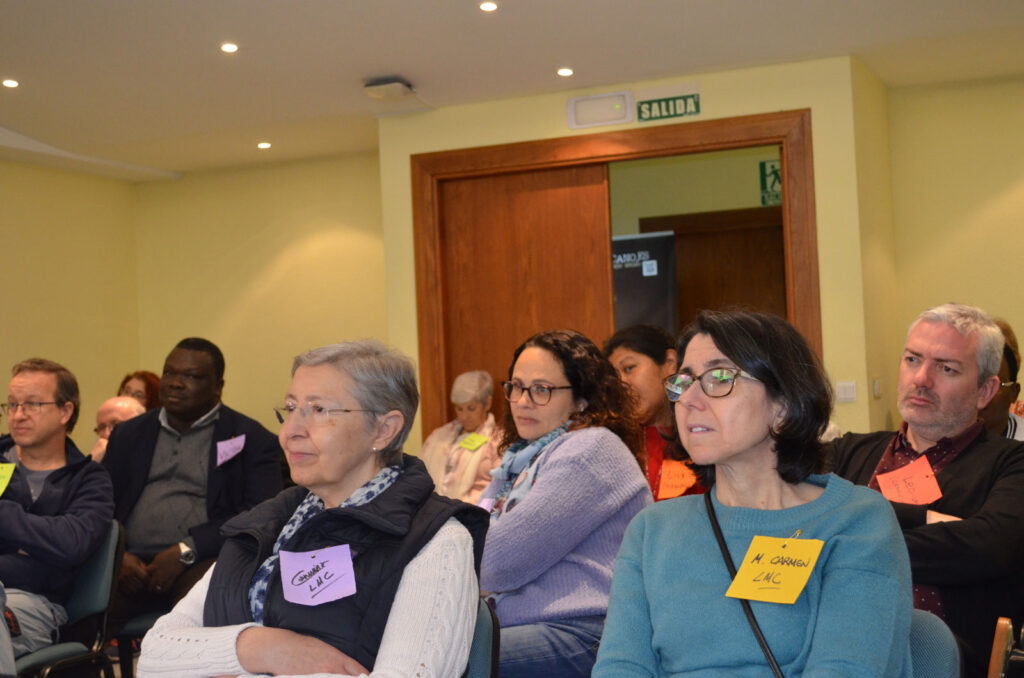
Finally, she also commented on the reconfiguration. Understanding that the model so far maintained is no longer viable. With courage they propose a new reorganization from 19 circumscriptions to 6. A grouping of countries that allows a greater co-responsibility, solidarity sharing of resources and complementarity in the missionary service.
However, as with any change, they also recognize the resistance and uncertainty that it can provoke. But undoubtedly they trust in the intuition of the Spirit in this change. A change that will also need a formation for all the sisters that will allow them to assume this process and finally to continue going out to the existential peripheries to which they feel called, to the services with the indigenous peoples, migrants, human trafficking, etc.
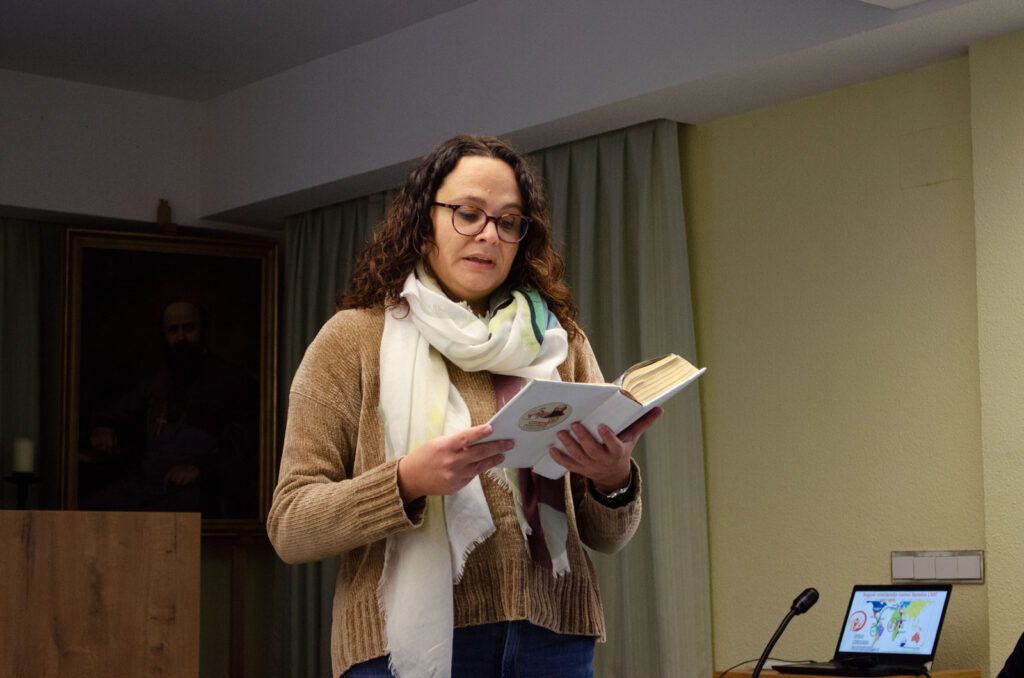
A beautiful prayer helped us to close the day in communion.
On Sunday we began the day praying together before the presentation of the CLM.
At first Isabel, as coordinator of the Spanish coordinating team, spoke to us about the last assembly, the change of team and the challenges we face in Spain. To understand how many we are and where we are present. To understand the activities we do as a group, but also the presence that each one of us has in the different places where we are. All this is central to take the pulse of our being CLM in Spain.
Then I had time to share the meetings held this year at continental level in America (Lima-Peru) and Africa (Cotonou-Benin).
The important thing, I believe, was not only to bring back what was agreed upon in the meetings, but above all to make known the richness and weaknesses of our CLM in these two continents.
First of all, there was time to briefly present the reality of the different countries of America in order to contextualize the meeting held in September.
Undoubtedly the pandemic, for which this meeting had to be postponed, has greatly marked the life of the people, and of course that of our groups. The impossibility of meeting as a group slowed down the activity. Everyone at home. Then we had to attend to family and community needs. Many of our groups have been community organizers and facilitators of help for the communities, such as the creation of community pots that have allowed so many people to get ahead. Then little by little we began to use online media to begin to pray together, to share, to reorganize, to form ourselves and to move forward.
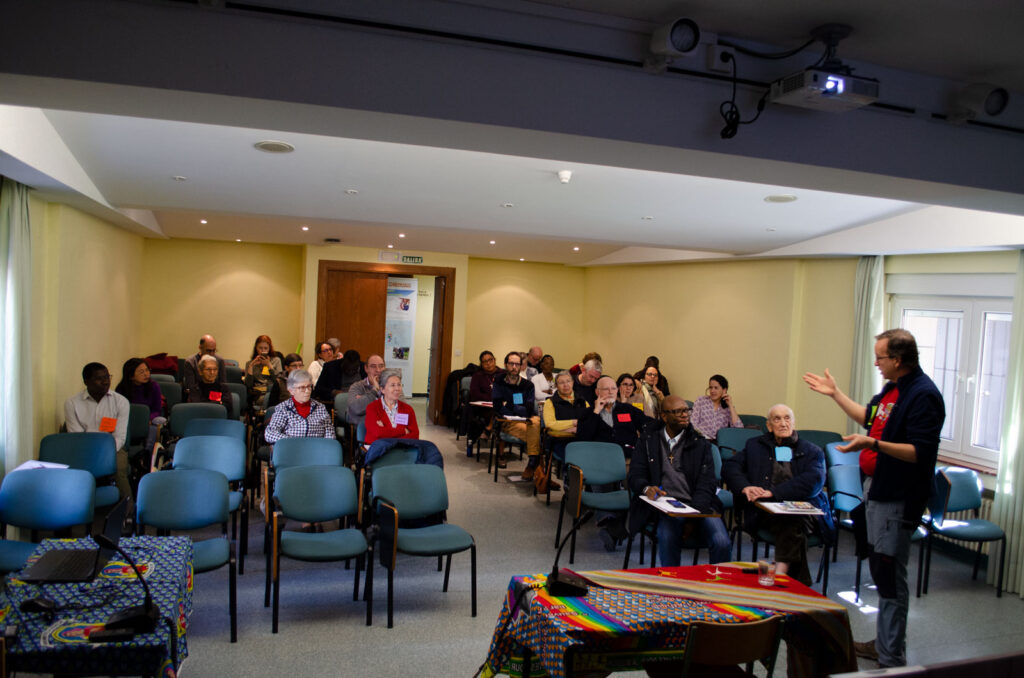
The theme of the meeting was “United for a synodal church at the service of the mission“. The meeting had privileged moments to share what each group has been working and living in these years, we had moments of joint formation to analyze the reality of America and the need for ministeriality and the importance of JPIC issues in our dynamics.
It was also important to highlight the moments of prayer and celebration of the Eucharist together, without which we could not understand the meeting itself and the importance of the presence of the Lord in it. Each day, and prepared by a country to help us enter into what we were sharing and analyze it in the light of the Word, asking the Lord for his inspiration and accompaniment.
There was also time to share the culture, gastronomy and festivities of our American peoples.
The resulting document of the meeting is short and easy to read. But what is really interesting is the impulse that each CLM of America group has received, the reinforcement that we are not isolated groups, but that we belong to an international CLM family and that together we are called to carry out the mission. Committing ourselves to this common work, seeking new vocations, strengthening our formation and even financially supporting this mission that we carry out together.
It is a privileged moment that we continue to give continuity with common formations for all the CLM of the continent. such as the one recently conducted by Fr. Rafael Gonzalez Ponce with the title ““Towards a synodal Church going out to the peripheries””.
We were then able to continue talking about the African meeting. In a way similar to that of America, with a context of post pandemic and how much this has affected the different countries and our groups in particular.
It was also a privileged time to reflect on the journey we are making.
The two continental meetings were especially important for the new groups that participated for the first time in this type of meeting, as in the case of Chad and Kenya. They are groups that have been working for a long time at the country level, but the meeting with CLM from other countries helps them to grow in their CLM vocation, helps us all to discover the richness of it, the co-responsibility in the mission and the importance of the contribution of each one from our own reality.
The African meeting also stood out for the particularity of the continent, for the evaluation of our international missionary presences or the reality of an African church that still has a long way to go to be fully inculturated and the need for us as committed lay people identified with our faith to help in this process, in reflection and practice.
I think that bringing the daily life of our people in America and Africa (some of them also Spanish, of course) helped us to know better our vocation and the expression of it in our day to day life.
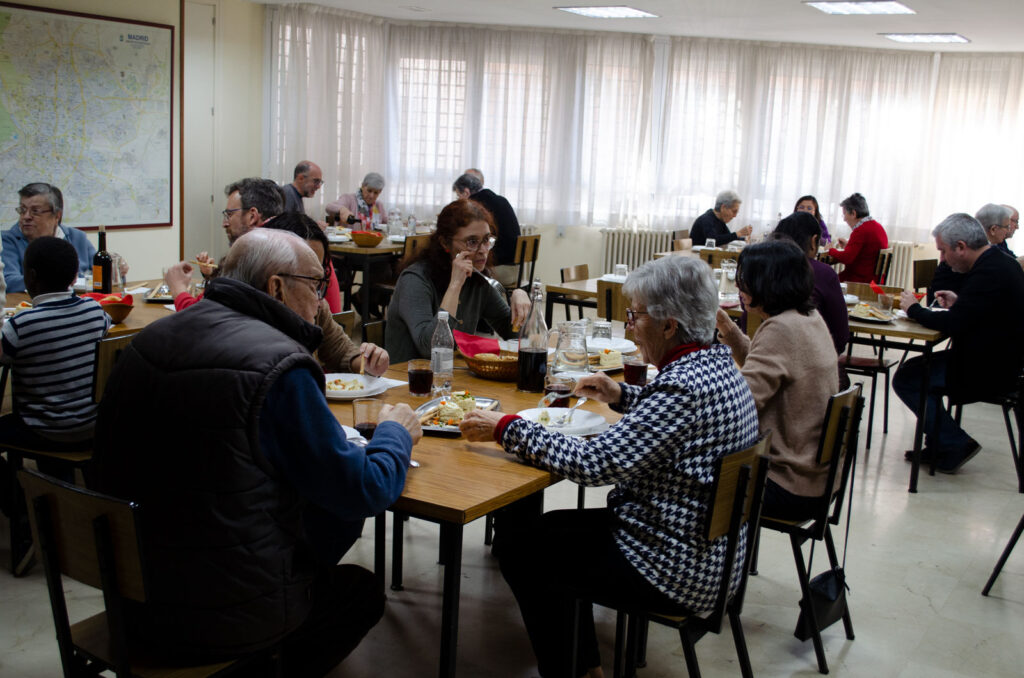
At the end of the meeting we had a few words from the leaders of the three participating branches, encouraging us to continue in this family endeavor.
Finally, all together, we went up to celebrate the Eucharist as a family. During the Eucharist we had a special moment for Fr. Pedro Andrés who, after these years as Provincial in Spain, is leaving for Peru. With this moment of thanksgiving and sending out as a family, this beautiful weekend came to an end, returning each one of us to our own corner of Spain with much energy and missionary conviction, confirmed in the charism we have received and the joy of sharing it with the other members of the family.
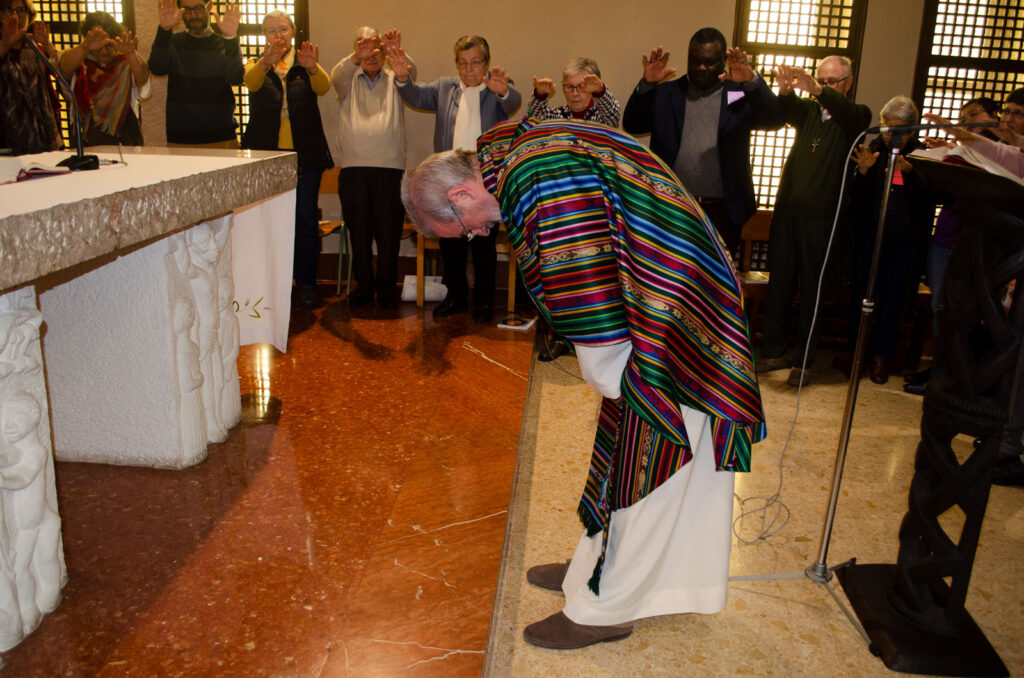
Kind regards to all, Alberto de la Portilla (coordinator of the CLM Central Committee and Spanish CLM member).




